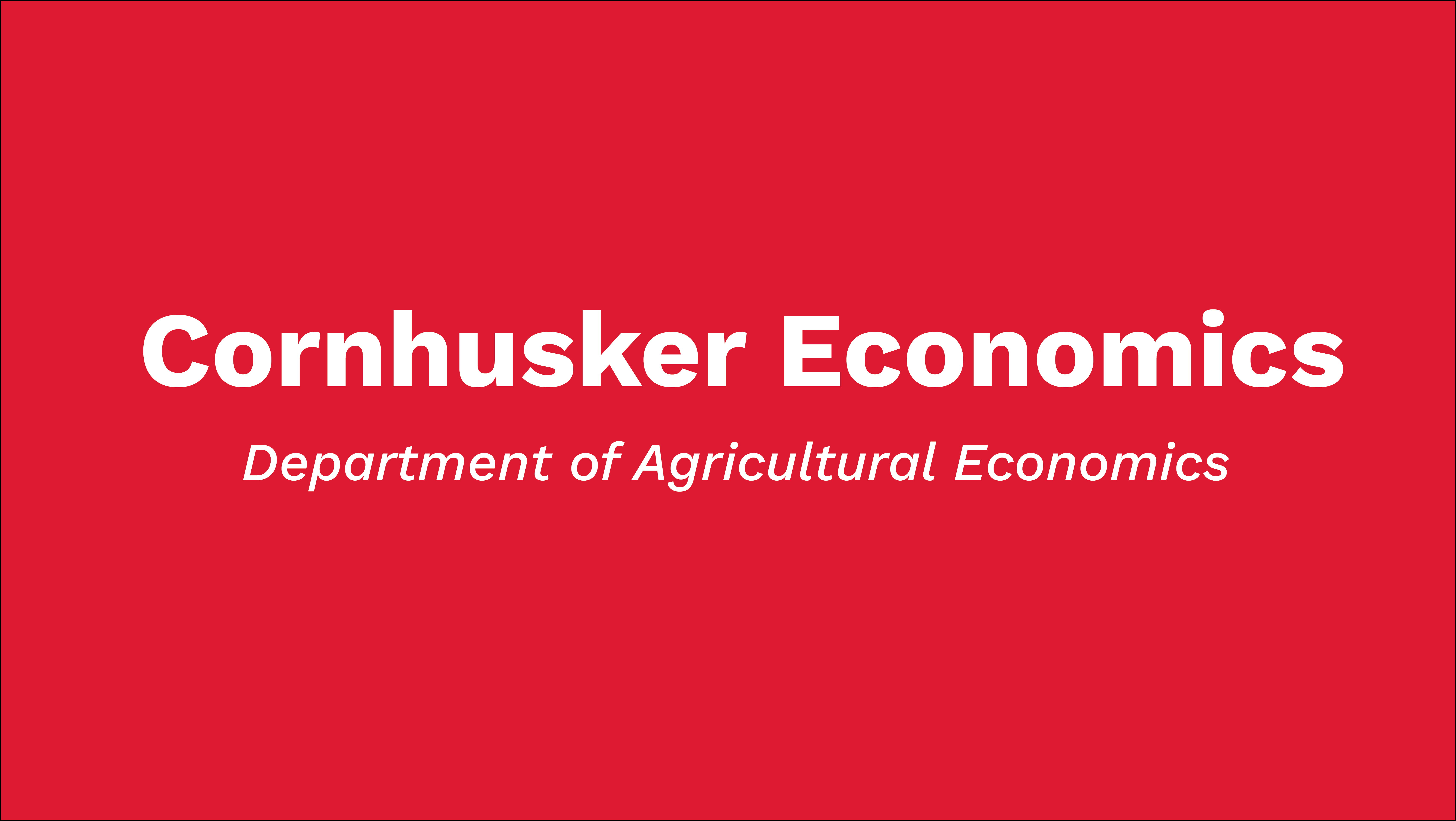Content
Cornhusker Economics Feb. 7, 2024
Embracing Diversity in Agricultural Economics
By Timothy Meyer
Preface
One of the unique aspects of positions in higher education (and specifically at the University of Nebraska-Lincoln) is the process of year-end self-evaluation. Part of this process includes writing an impact statement. An impact statement goes beyond the specific objectives outlined in contracts and/or job duties. I took the opportunity this year to write my impact statement based on my own undergraduate student experience. During my junior year of college, I had an influential Ag Economist for a Professor who often told me, “Tim, not everyone is like you.” Ask anyone who knows me, this is a good thing! What my mentor was really pointing out was that there was diversity in the world and experiencing it would be beneficial in my life. College gives students the opportunity to learn about others. While I still believe nothing beats a medium-rare cut of prime rib, my life has been profoundly impacted by people who are not like me.
Public Value
Agricultural Economics along with the other fields in CASNR adds value to the entire economy by more efficiently solving the scarcity problem within agriculture. Educating the best and brightest young adults results in better food products, more affordable nutrition, and less uncertainty in food markets. This can only be done if all students believe there is a place for them in agriculture.
The Situation
Universities are currently operating in an era where there is division in many facets of life. The extremist viewpoints that characterize US politics are infiltrating the University. Within CASNR, and specifically the Department of Agriculture Economics, a clear message must be sent that Agriculture is for everyone, and that talent of all kinds can contribute to the food complex. More specifically, different viewpoints and opinions are needed to most effectively address the issues related to food and fiber production.
Instructor Response
One example of the diversity issue that is present within the department’s undergraduate program is the vilification of vegetarianism, veganism, or non-animal protein producers. While students do not make malicious statements regarding alternative consumption choices, they make comments that reveal they are close-minded when it comes to certain consumer preferences. I have used this example to highlight how production choices to serve alternative preferences could actually benefit all. In this case, and others, I rely heavily on economic theory to open minds and defuse conflict. For just about any controversial concept, there is a starting place of agreement that should be highlighted. One non-ag example would be the provision of public education. Nearly all would agree some public education should be provided to all; the disagreement is how much. The same can be said for the provision of nearly any other public good.
Impact
The most quantifiable impact is the lack of negative responses to year-end student surveys! More informal impact is evident through the discussions I’ve had with students about the production choices that are being considered by their family farms and ranches. Another example of the strong viewpoints held by students is a negative attitude regarding debt financing. After presenting the value of credit in certain circumstances, the number of students asking to speak to me individually regarding finance choices on the farm and/or ranch has skyrocketed. While the lessons producers learned regarding debt financing in the 1980s are important, those emotions should not drive future decisions. Instead, it is my goal for students to consider debt financing with the ultimate goal of profit maximization, while clearly understanding the risk that debt poses to a farm business.
Participant Feedback
Incidentally, a student recently asked me to write a letter of recommendation for a pork industry internship. The student had just completed one of my Fall courses, and through our correspondence, she revealed she grew up in a vegan household. Given her comfort level asking me for a letter tells me my efforts were well-received. Her last email to me is in italics:
I cannot thank you enough for the kind words in the letter. …Once again, I am extremely grateful for the letter and timely response. Please do not feel rushed in the response back—it is not due until January.
Maybe as time goes on I will share more with others about my plant-based childhood. That's sacrilegious in this state.
Summary
To steal an overused cliché, “There’s room in the tent for everyone.” Over the 2023 academic year, I have reiterated this message to all my students, with one addition. Not only is there room for everyone, but all are invited AND welcome. Food is something we all have in common, no matter the background. I think this is why producers in the state of Nebraska feel as strongly as they do about the food they produce; it is life-giving and should be taken seriously. Nebraska Agriculture is part of what makes our state great, and that is not a secret that should be kept from anyone.
Timothy Meyer
Associate Professor of Practice
Department of Agricultural Economics
University of Nebraska – Lincoln
tmeyer19@unl.edu
402-472-2314
